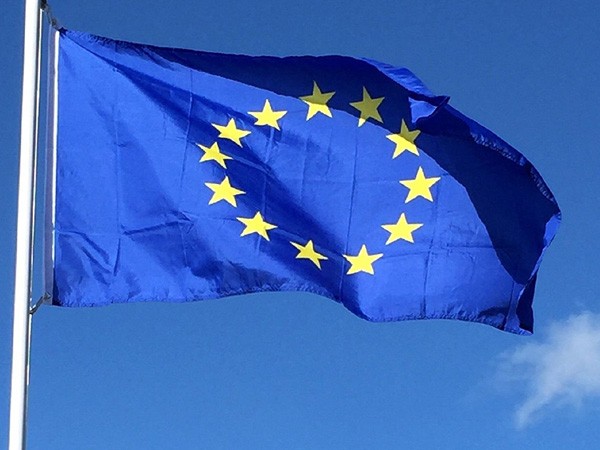Japan and EU Forge historic security pact amid rising tensions with China and Russia
Nov 03, 2024
Tokyo [Japan], November 3: On Friday, the Japanese government and the European Union finalized a partnership agreement focused on security and defence, responding to rising tensions with China and concerns over its support for Russia's war in Ukraine.
This partnership was announced during EU's foreign policy Chief, Josep Borrell's visit to Tokyo for the inaugural Japan-EU Foreign Ministers' Strategic Dialogue, alongside Japanese counterpart Takeshi Iwaya, as reported by the Voice of America.
Borrell emphasized the dangerous global climate, referring to the top security concerns for both Japan and the EU without specifically naming China, Russia, or North Korea. He described the agreement as "historical and very timely," noting it is "the first agreement of this nature" that the EU has made with a country in the Asia-Pacific region.
According to the report, the text of the EU-Japan Security and Defence Partnership, reviewed by Agence France-Presse, outlines plans for enhanced "concrete naval cooperation" through activities such as joint exercises and port visits, potentially involving "mutually designated third countries."
It also mentions discussions on advancing their respective defence initiatives, including information exchanges related to the defence industry.
Katsuya Yamamoto, program director and senior research fellow in security studies at the Sasakawa Peace Foundation, stated, "Through regular joint training, cruising, port visits, and cross-boarding during peacetime, like-minded nations can consistently convey to China and neighboring countries that the European and Indo-Pacific fronts are united."
He added that this agreement would demonstrate to China that the issue is not merely regional but a global security challenge.
Following the West's severance of ties with Russia after its full-scale invasion of Ukraine in 2022, Beijing and Moscow have been strengthening their relationship, including military cooperation. In September, the two nations conducted joint military exercises near Japan.
During an August visit to Taipei, Japan's Prime Minister Shigeru Ishiba expressed concerns that China might invade Taiwan similar to Russia's actions in Ukraine.
Taiwan, a self-governing and democratic island, is viewed by Beijing as a breakaway province that should reunite with the mainland, potentially by force. Russia has consistently supported China's stance on Taiwan, with its defence minister recently visiting Beijing to strengthen their defence ties.
The report further stated that on Thursday, China announced its inaugural naval exercises involving two aircraft carriers in the South China Sea, an area where Beijing's territorial claims conflict with the exclusive economic zones of Brunei, Indonesia, Malaysia, the Philippines, Taiwan, and Vietnam. Additionally, China and Japan have overlapping claims to islands in the East China Sea.
Stephen Nagy, a professor in the Department of Politics and International Studies at International Christian University in Japan, noted that the EU-Japan agreement aims to address threats to stability in the East China Sea, South China Sea, and Taiwan Strait, where China has conducted aggressive military exercises. He indicated that this may include sharing information and technology related to maritime domain awareness, as well as countering hybrid warfare, including cyber threats and disinformation. Nagy anticipates increased joint transits through the Taiwan Strait as part of this cooperation.
Wei-Hsiu Huang, a project researcher at the Institute for Advanced Studies on Asia at the University of Tokyo, observed that Russia's invasion of Ukraine, along with China's actions in the Taiwan Strait and South China Sea, has bolstered cooperation between Japan and the EU.
He believes that the future of security collaboration will be broad, extending beyond the immediate concerns of the Taiwan Strait, South China Sea, North Korea, and Russia.
Analysts suggest that Europe's role in East Asian security may become more significant if former US President Donald Trump is re-elected, given his advocacy for Taiwan and Japan to take greater responsibility for their defence, which could signal a potential reduction in US military involvement in the region. In contrast, his opponent, Vice President Kamala Harris, is expected to maintain the Biden administration's current policies in the region.
Nagy cautioned that if the US were to completely withdraw, Japan and the EU might struggle to provide adequate deterrence against China altering the region's security framework, though he considered such a scenario unlikely.
Yamamoto added that regardless of whether Trump or Harris is elected, both the US government and society will expect increased contributions from Japan and Europe.
Huang concurred, noting that Japan's ties with Europe will likely remain unaffected by the US presidential election, as enhanced security cooperation between Japan and Europe benefits the US as well.
On Thursday, North Korea launched a new intercontinental ballistic missile capable of reaching nearly any location in the United States, drawing condemnation from the US, Japan, South Korea, Europe, and the United Nations Secretary-General.
Source: Times of Oman








